|
Dusty Dog Reviews The whole project is hip, anti-academic, the poetry of reluctant grown-ups, picking noses in church. An enjoyable romp! Though also serious. |
|
Nick DiSpoldo, Small Press Review (on Children, Churches and Daddies, April 1997) Children, Churches and Daddies is eclectic, alive and is as contemporary as tomorrow’s news. |



|
Kenneth DiMaggio (on cc&d, April 2011) CC&D continues to have an edge with intelligence. It seems like a lot of poetry and small press publications are getting more conservative or just playing it too academically safe. Once in awhile I come across a self-advertized journal on the edge, but the problem is that some of the work just tries to shock you for the hell of it, and only ends up embarrassing you the reader. CC&D has a nice balance; [the] publication takes risks, but can thankfully take them without the juvenile attempt to shock. |
|
from Mike Brennan 12/07/11 I think you are one of the leaders in the indie presses right now and congrats on your dark greatness. |
Volume 245, September / October 2013
Internet ISSN 1555-1555, print ISSN 1068-5154

Cover by Edward Michael O’Durr Supranowicz
see what’s in this issue...
Note that in the print edition of cc&d magazine, all artwork within the pages of the book appear in black and white.
|
Order this issue from our printer as a paperback book (5.5" x 8.5") perfect-bound w/ b&w pages |

|
poetry the passionate stuff |
My biodegradable soulFritz Hamilton
My biodegradable soul has
wood by his deciples/ only Judas
rats on the cat tarnishing his halo &
much/ his Daddy told him what was about
his best of all buddies alerting the fuddyduddies
hammer to put him in the slammer when he pounds
Supersoul shouting, “Up Up & AWAY!”/ where there’s
crashes to crush God’s children in U ain’t nothin’!
|
The squirrel climbs up the flagpoleFritz Hamliton
The squirrel climbs up the flagpole/ takes
eagle sees him rotting for his country &
McCarthy & Caligula ask
hammer & sicky/ Dick Nixon returns from
Watergate washing the nation with Nixon’s
Jesoo/ Moses parts the water so they can get
Yawah takes stock of !
|
The Enemies of the Creative are the Dull Minded
Dr. (Ms.) Michael S. Whitt |
Gun RaisedDana Stamps, II
Ever since I can remember, my real dad
All I ever got was a bb gun, and a life-
on his land. I shot soda cans full of holes,
One time, a blackbird landed near where the cans
Its body, blood trickling down its wings,
to tell my father because he was a hunter,
|
IroningDevon Sova
What a funny day for napkins
|
Small ChangeOz Hardwick
My keys and my guilt rattle in my pockets. It’s a comfort
My credit cards and my insecurities I keep hidden.
My diary and my regrets lie close to my heart. I’d be lost
|
Night MissDan Fitzgerald
She calls the night her friend
|
| Bob Rashkow reads the Dan Fitzgerald poem Night Miss from cc&d mag, v245 |

See YouTube video of Bob Rashkow reading the Dan Fitzgerald poem Night Miss in cc&d mag, v245 live 10/30/13 in Chicago at her the Café Gallery poetry open mic (C) |
EGYPT
CEE |
GalaxinaCEE
That PLAYBOY Playmate, long, long ago
|
ExcisionSean J Mahoney
That’s right. I give up. I don’t want anything. Nothing more
Please grant me serfdom. Appoint me peasant. Make my
|
Noted American Painter Andrew Wyeth, 91, DiesCaroline N. SimpsonHe was born here, lived here.
Three generations of Wyeths, aging people and brown, dead plants.
Alone for hours, he tramped across the countryside timelessness of rocks and hills. “There’s a lot of cornball in that state!” but here
we have scandals hidden in brushstrokes,
Her face tantalizingly unseen,
a dilapidated farmhouse, gray and shadowed alone against the walls of a dimly lit museum.
When he chafed under criticism, Christina’s World Grass grows thick over tracks to a farmhouse with no lights on.
All the people who have lived here no longer give interviews;
You feel the bone structure in this landscape,
|
About Caroline N. SimpsonCaroline N. Simpson is an international teacher, currently residing in Turkey. She has taught English literature at international high schools in Ankara, Turkey, Barcelona, Spain, and currently Izmir, Turkey. Her poetry has been published in Barcelona-based literary magazine, Barcelona Ink, Michigan-based journal, Third Wednesday, and e-zine, Ascent Aspirations.
|
Aging MathematicsDoug Draime
I am losing
many beautiful
no longer
|
| Bob Rashkow reads the Doug Draime poem Aging Mathematics from cc&d mag, v245 |

See YouTube video of Bob Rashkow reading the Doug Draime poem Aging Mathematics in cc&d mag, v245 live 10/30/13 in Chicago at her the Café Gallery poetry open mic (C) |
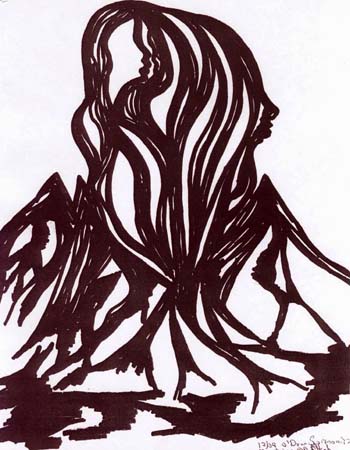
Mountains of Flesh, art by Edward Michael O’Durr Supranowicz
Lover’s ParadiseMCD
Why that is a good cup
I think the birds like me Michael,
See I don’t have that problem
Absolutely, I certainly agree
Michael do you think I need
|
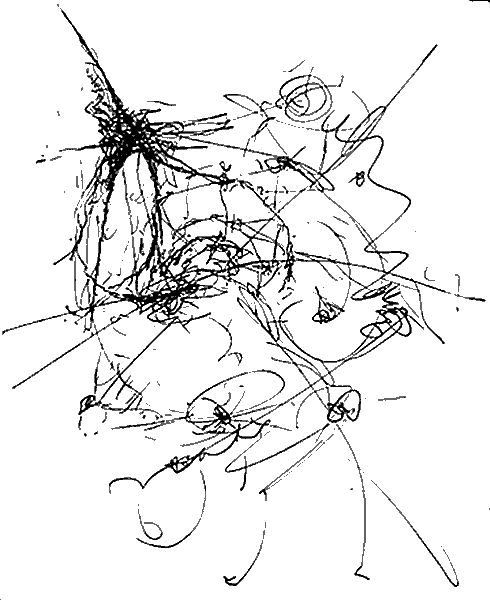
upside down heart, art by the HA!Man of South Africa
Something Told Me NoDavid Thompson
If you ever come near the kids again, I’ll have
It had been a nice Friday night out on my little porch
After a few moments of quiet again, I decide
|
Evolution’s ConundrumI.B. Rad
Posited Darwin,
|
Truth FairyNeal Wilgus
Tinker leaves a
reprinted from HANDSHAKE No. 84
|
| Bob Rashkow reads the Neal Wilgus poem Truth Fairy from cc&d mag, v245 |

See YouTube video of Bob Rashkow reading the Neal Wilgus poem Truth Fairy in cc&d mag, v245 live 10/30/13 in Chicago at her the Café Gallery poetry open mic (C) |
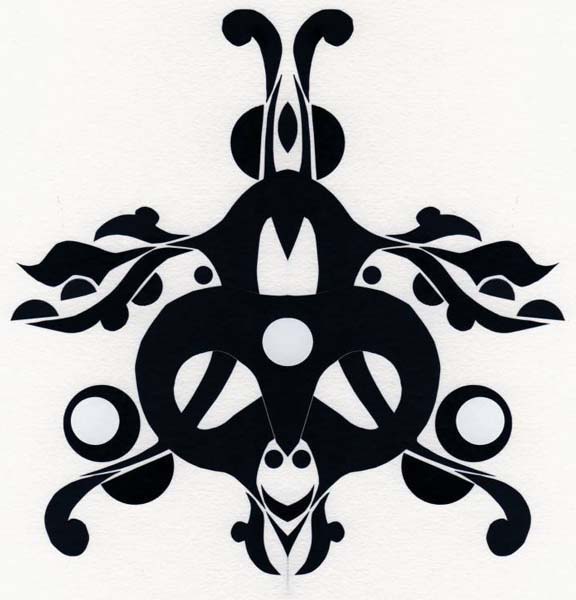
DESEN 342 Uzeyir KUC, art by Üzeyir Lokman ÇAYCI
Male Advocacy GroupsKelley Jean White MD
The most famous athlete in the world, a terrifying
While gays and feminists favored a future filled with robot
men are still in control. (We sipped a couple of cold ones
They can hold simple conversations. (To get off
constant attempts. We gaze at a full moon and a lunar
cliffs and rock climber who free solo–(free picture album |
Untitled (clouds)Simon Perchik
It’s a risk, these clouds
though once inside this jar
no one studies anymore, comes
and your mouth too has aged
believed by all the experts
even its place to hide in flowers
|
I Died Earlier TonightJeff Stinson
I died earlier tonight Bam!
Liquid crimson melts into the black asphault
Memories of me are splattered everywhere
I’ve been waiting for 5 months
I want to be with him
He is here
|
MonsterJeff Stinson
When I was young
|
| Bob Rashkow reads the Jeff Stinson poem Monster from cc&d mag, v245 |

See YouTube video of Bob Rashkow reading the Jeff Stinson poem Monster in cc&d mag, v245 live 10/30/13 in Chicago at her the Café Gallery poetry open mic (C) |
To ParalysisErin Neckels
The right words never failed
Imagine my delight
I made a mistake.
|
Death at 6 A.M.Jessica Pilgreen
An unexpected struggle
|
| Janet Kuypers reads the Jessica Pilgreen poem Death at 6 AM from the September/October 2013 v245 issue of cc&d magazine |

See YouTube video of Janet Kuypers reading the Jessica Pilgreen poem Death at 6 AM from the September/October 2013 v245 issue of cc&d magazine live 11/20/13 at the open mic the Café Gallery in Chicago (C) |
OverkillR. N. Taber
Gone, the meadow where once
Shades of grey looking up, no sign
A blur, the highway’s progress
Grim, the daily funeral processions |
| Bob Rashkow reads the R. N. Taber poem Overkill from cc&d mag, v245 |

See YouTube video of Bob Rashkow reading the R. N. Taber poem Overkill in cc&d mag, v245 live 10/30/13 in Chicago at her the Café Gallery poetry open mic (C) |
Autumn LeavesR. N. Taber
Pavement art
A love affair, one
|
| Janet Kuypers reads the R. N. Taber poem Autumn Leaves from the September/October 2013 v245 issue of cc&d magazine |

See YouTube video of Janet Kuypers reading the R. N. Taber poem Autumn Leaves from the September/October 2013 v245 issue of cc&d magazine live 11/20/13 at the open mic the Café Gallery in Chicago (C) |

Shadows on the River art by David Michael Jackson
Having My BabyMichael Ceraolo
While the world was changing around them
[at that time in history
And
And
First-Class Pregnancy,
Second-Class Pregnancy,
Third-Class Pregnancy,
This science
Some having the desirable traits
[such effects included
But
And
Strike One:
Strike Two:
and
And as a result of this unacknowledged war
|
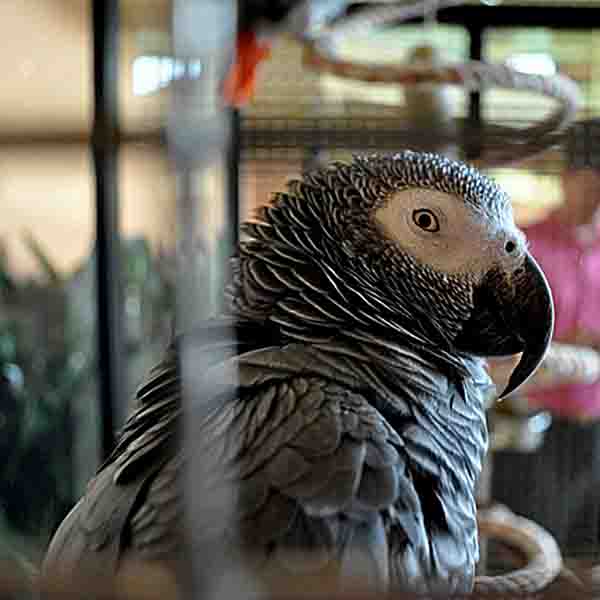
art by Peter LaBerge
return of the birdsChristopher Mulrooney
when the fountain was cleared
|

|
Chicago Pulse “sweet poems, Chicago ” |
PigeonWes Heine
We are pigeons
We are pigeons
We are pigeons
We are pigeons
We are pigeons
|
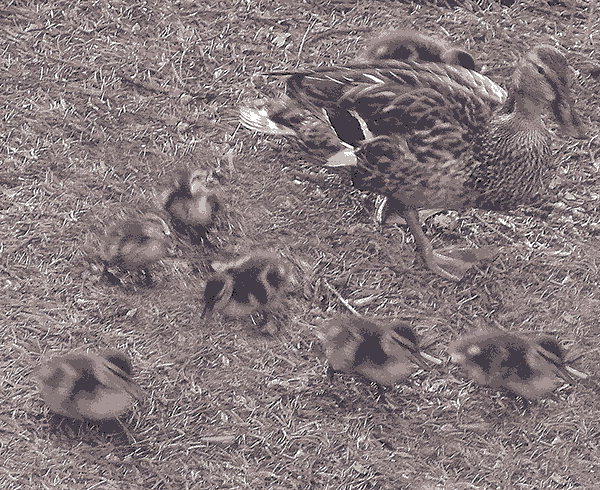
The GiftRobert Lawrence
At a recent reading, I learned that
A gift can be exchanged, right?
I have had this body long enough
I want a strong nose, a strong chin
What kind of gift is programmed
You think I’m a whimpering ingrate?
But I was fashioned out of
My body is not a gift,
|
FacesTom Curry
He was twelve when he first realized he could remove his face; paused
overcame the tension
For years he would only remove his face when he was alone
Much more malleable off the skull than on,
He was twenty when he learned he could make more of them
|
Hunting Down Dinner on Highway 13Emily Calvo
Stomach’s rumbling like the muffler
Inside, ceiling fans twirl counter-clockwise
He’s the Beefmaster,
Mrs. Beefmaster, dressed in nurse-blue polyester hollers,
Junior Beefmaster
And I move, to the cash register
|
satan @ sheetzJoe Roarty
Rain breaks
I saw satan
as long as it rains
|
excerpt from
David (Buddha309) Hargarten |
| Janet Kuypers reads an excerpt from the David (Buddha309) Hargarten poem “The not enough coffee, still up all night, lack of direction, paranoid A.D.D. blues” from cc&d mag, v245 |

See YouTube video of Janet Kuypers reading an excerpt from the David (Buddha309) Hargarten poem “The not enough coffee, still up all night, lack of direction, paranoid A.D.D. blues” in cc&d mag, v245 live 10/16/13 in Chicago at her the Café Gallery poetry open mic (C) |
4.20.07 1132pEmilio Maldonado
I walk outside and place my hands
|
Momento MoriJanet Kuypers12/14/12 only knowing you from afar
every once in a while
once i saw you
then i saw you
i think i saw you with your children
as i said,
then one day
i’ve always only
suddenly #
they call this
because
|

Watch this YouTube video live at Waiting4the Bus at Jak’s Tap in Chicago 3/4/13 |

Watch this YouTube video live at Waiting4the Bus at Jak’s Tap in Chicago 3/4/13 (Edge Detection filter) |

Watch this YouTube video live at Waiting4the Bus at Jak’s Tap in Chicago 3/4/13 (Film Age - Older filter) |

Watch this YouTube video live at Waiting4the Bus at Jak’s Tap in Chicago 3/4/13 (Posterize filter) |

Watch this YouTube video live at Waiting4the Bus at Jak’s Tap in Chicago 3/4/13 (Threshold filter) |

Watch this YouTube video of Kuypers reading All I Can Capture and Momento Mori live at Waiting4the Bus at Jak’s Tap in Chicago 3/4/13 |
Glomming off
Janet Kuypers |

See YouTube video of Kuypers reading this poem 9/26/26 at the Café Gallery in Chicago (Canon) |

See YouTube video of Kuypers reading this poem 9/26/26 at the Café Gallery in Chicago (Sony) |

See YouTube video of Kuypers’ open mike 9/26/26 at Gallery Cabaret’s the Café Gallery in Chicago, plus her poetry (including this poem) |
Only SearchingJanet Kuypers2/11/13
had no job
and someone crashed into me
docs put a tube down my throat
they attached an electronic gizmo to my head
fed me by shoving a tube through my skin
had to re-learn
after I finally got free
I almost lost everything
|

See YouTube video of Kuypers reading this poem 2/13/13 at the Café Gallery in Chicago, with John playing their song “Tight Rope Affair” (from the Canon camera) |

See YouTube video of Kuypers reading this poem 2/13/13 at the Café Gallery in Chicago, with John playing their song “Tight Rope Affair” (from the Sony camera) |

See YouTube video of Kuypers hosting the open mic 2/13/13 at Gallery Cabaret’s the Café Gallery in Chicago, starting w/ her poetry (including her performing this piece) |

See YouTube video of Kuypers performng poetry in a last-minute mini-features @ the open mic 2/13/13 at Gallery Cabaret’s the Café Gallery in Chicago, which includes this piece (Canon) |

See YouTube video of Kuypers performng poetry in a last-minute mini-features @ the open mic 2/13/13 at Gallery Cabaret’s the Café Gallery in Chicago, which includes this piece (Sony) |
Quitting is Always an OptionJanet Kuypers9/6/12
someone explain to me They tap out.
So why do people
|

See YouTube video of Kuypers reading this poem 9/26/26 at the Café Gallery in Chicago (Canon) as if she were on the phone |

See YouTube video of Kuypers reading this poem 9/26/26 at the Café Gallery in Chicago (Sony) as if she were on the phone |

See YouTube video of Kuypers’ “Listening In” 9/26/26 at the Café Gallery in Chicago (Canon), with this poem said on the phone |

See YouTube video of Kuypers’ “Listening In” 9/26/26 at the Café Gallery in Chicago (Sony), with this poem said on the phone |

See YouTube video of Kuypers’ open mike 9/26/26 at Gallery Cabaret’s the Café Gallery in Chicago, plus her poetry (including this poem) |
Overloaded with LiabilitiesJanet Kuypers8/25/12
Now, I checked into this: This company
Now, I’m no economics major,
As I said, I’m no accountant,
|
| Janet Kuypers reads her poem Overloaded with Liabilities from cc&d mag, v245 |
|
Rather read it? Then read the poem Overloaded with Liabilities |

See YouTube video of Janet Kuypers reading her poem Overloaded with Liabilities from cc&d mag, v245 live 10/16/13 at the open mic the Café Gallery in Chicago (C) |

See YouTube video of Janet Kuypers reading her poem Overloaded with Liabilities from cc&d mag, v245 live 10/16/13 at the open mic the Café Gallery in Chicago (S) |
Ugly babies need the most loveJanet Kuypers3/1/13, twitter-length poem
“Ugly babies need the most love,”
|
| Janet Kuypers reads her twitter-length poem Ugly babies need the most love from cc&d mag, v245 |
| Rather read it? Then read the twitter-length poem Ugly babies need the most love |

See YouTube video of Janet Kuypers reading her twitter-length poem Ugly babies need the most love from cc&d mag, v245 live 10/16/13 at the open mic the Café Gallery in Chicago (C) |

See YouTube video of Janet Kuypers reading her twitter-length poem Ugly babies need the most love from cc&d mag, v245 live 10/16/13 at the open mic the Café Gallery in Chicago (S) |
BimboJanet Kuypers9/27/12
At work,
So at work
|
| Janet Kuypers reads her poem Bimbo |
| Rather read it? Then read the poem Bimbo |

See YouTube video of Janet Kuypers reading her twitter-length poem Bimbo live 10/16/13 at the open mic the Café Gallery in Chicago (C) |

See YouTube video of Janet Kuypers reading her ptwitter-length poem Bimbo live 10/16/13 at the open mic the Café Gallery in Chicago (S) |
Janet Kuypers Bio
Janet Kuypers has a Communications degree in News/Editorial Journalism (starting in computer science engineering studies) from the UIUC. She had the equivalent of a minor in photography and specialized in creative writing. A portrait photographer for years in the early 1990s, she was also an acquaintance rape workshop facilitator, and she started her publishing career as an editor of two literary magazines. Later she was an art director, webmaster and photographer for a few magazines for a publishing company in Chicago, and this Journalism major was even the final featured poetry performer of 15 poets with a 10 minute feature at the 2006 Society of Professional Journalism Expo’s Chicago Poetry Showcase. This certified minister was even the officiant of a wedding in 2006. |

|
prose the meat and potatoes stuff |
Blind SidedEric Burbridge
Vince Dixon said no more $1 bets on that machine. Sharon Dixon sat opposite her luckless spouse. She winked and hit the button on her machine. Three clicks and the lights flashed on top and the machine sang. “I love that sound.”
Vince rushed down the aisle to the slots and somebody else sat at the machine. Where was Sharon? He wasn’t gone that long. He scanned the area and spotted a guy in a suit with chopped hair and glasses. He must be a floor manager. “Excuse me.”
Vince shoved in his keycard. He promised himself not to shout, but no Sharon. He looked in the bedroom and her luggage was gone. His heart sank when he saw her keycard on the pillow. He smackedTwenty-five years of marriage with no financial power struggles. Their retirement went well; she baked and he wrote. He stayed home a lot. She said she loved his work. Was she bored? We shared everything. Why? Maybe some degenerate was holding her hostage? That had to be it. Don’t kid yourself, Vince.
Vince smiled inward and outward whenever they pulled into the driveway. The custom tri-level with the attached garage and white face brick on all sides became a project for Sharon. She called it her accidental blessing. She drove down a street to avoid a railroad crossing and there it was their retirement home. And, in a few years that dream came true. They didn’t have a lot of money. Their combined pensions met all their financial needs; no stress or strain. They loved each other; all the bad times were behind them.
Vince ended two weeks of seclusion, drunkenness and tears. He decided to detail his 2002 Camry to perfection. Two days and three coats of wax later he felt better. She looked good, but he made a big mistake when he picked up a pizza. Never park under a tree; the birds had a bad case of diarrhea. His pride and joy was blanketed.
Gillespie pulled in the back of the Second District station. He handed Vince over to a couple of rookies. They hurried him down a dingy, musty smelling corridor pass several interview rooms. All the ancient CCTV cameras followed them. They pushed through a set of double steel reinforced doors into the squad room. It smelled like a locker room. All eyes looked their way and then returned to whatever they were doing. The tall thin graying desk sergeant gave Vince a dirty look. “What’s his problem?”
Vince pulled in his driveway, hit the button and the door crept upward.
For the past ten years Vince desired to write. He took a creative writing course and jotted down notebooks full of ideas. He put his pen aside several months ago before his martial crisis; writer’s block. He set-up his computer in a corner of the den next to a book shelf. He prayed for inspiration and got to work.
Some mutual friends invited them to a black tie anniversary party at the Blue Chip casino. Not one of his favorite places, but Clarissa wanted to go. Her little black dress clung in all the right places and he looked like James Bond in his tuxedo, so he thought, she laughed and agreed. They strolled pass the tables, side stepped clouds of smoke and all the excitement. He heard a distinct female voice, sweet and baritone. He stopped in his tracks.
Vince and Clarissa did their major celebrating at home. A bottle and a half of champagne later they were sprawled across the bed. Vince slept off some of the alcohol and woke up to Clarissa’s snoring. After he laid eyes on his ex he couldn’t sleep. The million questions in his mind were normal; get over it and don’t be bitter. Both of them had hangovers and Clarissa worked her magic in the kitchen. They ate in silence. “I’m going to ask this once and that’s it.” She said. “You are OK after last night?”
Two weeks later the newlyweds’ sun bathed on a beach in Aruba. Vince grabbed his smart phone to check his first of the month savings/checking balance.
|

The Heroes of the Fourth of February, image #005 of the le Monde images by Aaron Wilder
The GleanersKenneth DiMaggio
The Gleaners is a famous French 19th century painting by Jean Francois Millet. The painting depicts three women picking up leftover seeds in a field. Gleaners are people who pick up scraps. I recently discovered that I was a gleaner. I discovered it one Sunday morning when I scoured for leftover roaches or if I was lucky, complete joints, outside of Lower East Side clubs and bars.
|

Where Death ExistsDarcy Wilmoth
He walked to school that morning in a haze. He tried to remember his dream from last night, but couldn’t. It was a nice spring day. The weather was warm and the trees were green with new buds. Birds chirped. Flowers were blooming. Everything was new and alive.
“It’s time to get up in the morn-ing!” Alex heard his mom calling out like she always did on school days. She was still his alarm clock, and he much preferred her sweet sing-songy voice to sirens going off in his ear.
He walked to school the next morning in a haze. It was a nice spring day. The weather was warm and the trees were green with new buds. Birds chirped. Flowers were blooming. Everything was new and alive.
|
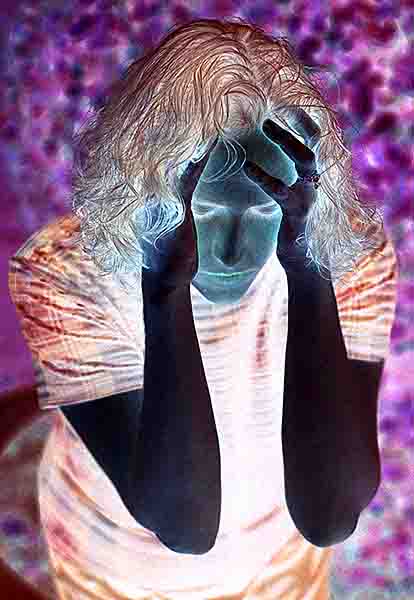

The VisitWes Perrin
“Slow down,” she said, hissing the s sound. “You’re driving way too fast for this road.”
|

Adventures In The Forbidden ZoneGuy J. JacksonYou hunt up a brick. You don’t just find a brick on a suburban street. You’d think they would just be there. You’d think of bricks as common. But most homes aren’t made out of brick and there’s not just bricks lying around. Not like there used to be. You’d think people would keep bricks in their yards by the garage door, just for casual use. But bricks are actually sometimes hard to come by. You find yourself sneaking around the sides of houses looking for them. Bricks are hard to come by and so are stones perfectly-sized. But what you want is a brick, so never mind the stones. You got to eventually break a piece off someone’s garden to get a brick. Bricks are perfect and that’s why it’s a cliché, but they’re perfect and so they’re desirable clichés. But you mustn’t throw too hard, you’ll throw out your arm. When you throw the brick you finally find at the bottom of someone’s rainspout. Collect the thought: you mustn’t throw out your arm when you throw the brick through your ex-girlfriend’s and/or ex-boyfriend’s window.
|
9 MinutesGuy J. JacksonAnonymous ski mask narrator exposing the world’s worst public transportation system. You ever hear of the 9 minute rule? It’s the rule whereby if you drop something like a candy bar you’re about to eat on the ground you have 9 minutes to pick it up and eat it before the germs come. That means your candy bar could be sitting in a puddle of Hepatitis blood and Bovine Spongiform Encephalopathy vomit for 9 full minutes before the germs get to it and you can stand there staring down at your candy bar in the puddle of blood and vomit for 8 minutes and 55 seconds before picking it up and eating it. Once I knew a guy though who dropped his candy bar on bare sidewalk and picked it up and ate it and still got sick, though. That’s the dilemma of a liberal who found out his dog was a conservative. The guilt of having roasted grasshoppers and watching their hoods turn red. Gotta go to where they doff their shoes before entering. Get the kids obsessed with some little thing or every little thing. Those are also all parts of the 9 minute rule. Subsets. Clauses.
|
Guy J. Jackson bioCurrently living in Los Angeles, Guy J. Jackson is a writer, performer, and moviemaker, and he can be somewhat found online at http://www.youtube.com/user/guyjjackson. BBC sound engineer Robin The Fog collaborated with Guy on their recent storytelling album “Notes On Cow Life”, downloadable via http://thefogsignals.com.
|
Macabre AbeW. Scott R. Brownlee
Abraham Lincoln was lying on his bed. Blankets were clad about at his sockless feet. He watched the alabaster skin of his thin belly, hair covered, move up and down as he breathed. Breathing was a start. His eyes were swollen inside the sockets of his aching skull, empty after a river of tears had flushed through them. The skin of his body was stretched across the bones of his cheeks sullenly; wrinkled and worn from the burden of war and pestilence. Grief was sprinkled with sadness on his lingering depression, that despondent dark motor inside his brain that had captured his soul from time to time, a trepid balancing act throughout his life of fighting off sadness with his now waning buoyant optimism. Those days when optimism was reliable enough to return as seasons do, blossoming like a flower pushing throughout the rich, moist, black soil of Illinois prairie, had now long since passed. Willy died one year ago today.
|
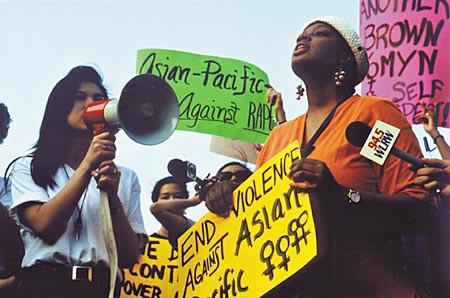
Participants of Another GenerationCarol SmallwoodExcerpt from Lily’s Odyssey (print novel 2010) published with permission by All Things That Matter Press. Its first chapter was a finalist for the Eric Hoffer Award in Best New Writing.
Years later, when Dr. Bradford told me about another meeting of incest victims to be held at the student counseling services in White Rapids, I was more prepared: Mark and Jenny were married then, and Uncle Walt and Cal were dead.
|

About Carol SmallwoodCarol Smallwood co-edited Women on Poetry: Writing, Revising, Publishing and Teaching (McFarland, 2012) on the list of “Best Books for Writers” by Poets & Writers Magazine; Women Writing on Family: Tips on Writing, Teaching and Publishing (Key Publishing House, 2012); Compartments: Poems on Nature, Femininity, and Other Realms (Anaphora Literary Press, 2011) received a Pushcart nomination. Carol has founded, supports humane societies.
|
Two Way StreetRonald Brunsky
His sinister features sent chills and a sense of foreboding through her. Her insides tightened, as his soulless, dark eyes temporarily froze her in place. She felt an immediate dislike and, hatred, although a more primal instinct—fear began filling her psyche.
|
The Mysterious Matter of the Spoiled ActressJohn Ragusa
Trapworth and I were drinking wine and smoking cigars while discussing local politics. That was when the front doorbell rang.
When we knocked on the door, it was answered by a young lady in a maid’s uniform. “Can I help you gentlemen?”
Lt. Heathfield was incredulous when we gave him the news. “You mean you’ve cracked the Barton case already?”
|

Debra Purdy Kong, writer, British Columbia, Canada I like the magazine a lot. I like the spacious lay-out and the different coloured pages and the variety of writer’s styles. Too many literary magazines read as if everyone graduated from the same course. We need to collect more voices like these and send them everywhere.
Children, Churches and Daddies. It speaks for itself. Write to Scars Publications to submit poetry, prose and artwork to Children, Churches and Daddies literary magazine, or to inquire about having your own chapbook, and maybe a few reviews like these.
what is veganism? A vegan (VEE-gun) is someone who does not consume any animal products. While vegetarians avoid flesh foods, vegans don’t consume dairy or egg products, as well as animal products in clothing and other sources. why veganism? This cruelty-free lifestyle provides many benefits, to animals, the environment and to ourselves. The meat and dairy industry abuses billions of animals. Animal agriculture takes an enormous toll on the land. Consumtion of animal products has been linked to heart disease, colon and breast cancer, osteoporosis, diabetes and a host of other conditions. so what is vegan action?
We can succeed in shifting agriculture away from factory farming, saving millions, or even billions of chickens, cows, pigs, sheep turkeys and other animals from cruelty. A vegan, cruelty-free lifestyle may be the most important step a person can take towards creatin a more just and compassionate society. Contact us for membership information, t-shirt sales or donations.
vegan action
Children, Churches and Daddies no longer distributes free contributor’s copies of issues. In order to receive issues of Children, Churches and Daddies, contact Janet Kuypers at the cc&d e-mail addres. Free electronic subscriptions are available via email. All you need to do is email ccandd@scars.tv... and ask to be added to the free cc+d electronic subscription mailing list. And you can still see issues every month at the Children, Churches and Daddies website, located at http://scars.tv
MIT Vegetarian Support Group (VSG)
functions: We also have a discussion group for all issues related to vegetarianism, which currently has about 150 members, many of whom are outside the Boston area. The group is focusing more toward outreach and evolving from what it has been in years past. We welcome new members, as well as the opportunity to inform people about the benefits of vegetarianism, to our health, the environment, animal welfare, and a variety of other issues.
Dusty Dog Reviews: These poems document a very complicated internal response to the feminine side of social existence. And as the book proceeds the poems become increasingly psychologically complex and, ultimately, fascinating and genuinely rewarding.
Dusty Dog Reviews: She opens with a poem of her own devising, which has that wintry atmosphere demonstrated in the movie version of Boris Pasternak’s Doctor Zhivago. The atmosphere of wintry white and cold, gloriously murderous cold, stark raging cold, numbing and brutalizing cold, appears almost as a character who announces to his audience, “Wisdom occurs only after a laboriously magnificent disappointment.” Alas, that our Dusty Dog for mat cannot do justice to Ms. Kuypers’ very personal layering of her poem across the page.
Fithian Press, Santa Barbara, CA Indeed, there’s a healthy balance here between wit and dark vision, romance and reality, just as there’s a good balance between words and graphics. The work shows brave self-exploration, and serves as a reminder of mortality and the fragile beauty of friendship.
Mark Blickley, writer You Have to be Published to be Appreciated. Do you want to be heard? Contact Children, Churches and Daddies about book or chapbook publishing. These reviews can be yours. Scars Publications, attention J. Kuypers. We’re only an e-mail away. Write to us.
The Center for Renewable Energy and Sustainable Technology The Solar Energy Research & Education Foundation (SEREF), a non-profit organization based in Washington, D.C., established on Earth Day 1993 the Center for Renewable Energy and Sustainable Technology (CREST) as its central project. CREST’s three principal projects are to provide: * on-site training and education workshops on the sustainable development interconnections of energy, economics and environment; * on-line distance learning/training resources on CREST’s SOLSTICE computer, available from 144 countries through email and the Internet; * on-disc training and educational resources through the use of interactive multimedia applications on CD-ROM computer discs - showcasing current achievements and future opportunities in sustainable energy development. The CREST staff also does “on the road” presentations, demonstrations, and workshops showcasing its activities and available resources. For More Information Please Contact: Deborah Anderson dja@crest.org or (202) 289-0061
Dorrance Publishing Co., Pittsburgh, PA want a review like this? contact scars about getting your own book published.
 The magazine Children Churches and Daddies is Copyright © 1993 through 2013 Scars Publications and Design. The rights of the individual pieces remain with the authors. No material may be reprinted without express permission from the author. 
Okay, nilla wafer. Listen up and listen good. How to save your life. Submit, or I’ll have to kill you.
Dorrance Publishing Co., Pittsburgh, PA: “Hope Chest in the Attic” captures the complexity of human nature and reveals startling yet profound discernments about the travesties that surge through the course of life. This collection of poetry, prose and artwork reflects sensitivity toward feminist issues concerning abuse, sexism and equality. It also probes the emotional torrent that people may experience as a reaction to the delicate topics of death, love and family. “Chain Smoking” depicts the emotional distress that afflicted a friend while he struggled to clarify his sexual ambiguity. Not only does this thought-provoking profile address the plight that homosexuals face in a homophobic society, it also characterizes the essence of friendship. “The room of the rape” is a passionate representation of the suffering rape victims experience. Vivid descriptions, rich symbolism, and candid expressions paint a shocking portrait of victory over the gripping fear that consumes the soul after a painful exploitation.
Dusty Dog Reviews (on Without You): She open with a poem of her own devising, which has that wintry atmosphere demonstrated in the movie version of Boris Pasternak’s Doctor Zhivago. The atmosphere of wintry white and cold, gloriously murderous cold, stark raging cold, numbing and brutalizing cold, appears almost as a character who announces to his audience, “Wisdom occurs only after a laboriously magnificent disappointment.” Alas, that our Dusty Dog for mat cannot do justice to Ms. Kuypers’ very personal layering of her poem across the page.
|